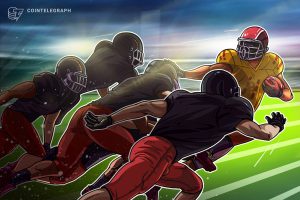Sen. Adam Bass filed bill SB181 on Friday, proposing to ban sweepstakes casinos. The bill explicitly states that it aims “to prohibit sweepstakes gaming”.
Louisiana is the latest state to target the rise of online games that allow players to essentially play casino games but avoid licensing laws due to the introduction of virtual currencies.
Getting an all-encompassing definition that covers all legal loopholes can be challenging. In bill SB181 there is a long-winded attempt to do just that. The bill defines outlawed games as,
“Any games, contest, or promotion that is available on the internet or accessible on a mobile phone, computer terminal, or similar access device that utilizes a dual-currency system of payment allowing the player to exchange the currency for any prize or award or cash or cash equivalents, or any chance to win any prize or award or cash or cash equivalents, and simulates any form of gambling shall constitute illegal gambling by computer and shall not be considered a legal sweepstakes.”
It goes on to specify, “Such forms of gambling shall include but not be limited to the following:
(1) Casino-style gaming, such as slot machines, video poker, and table games, including blackjack, roulette, craps, and poker.
(2) Lottery games, including draw games, instant win games, keno, and bingo.
(3) Sports wagering.”
If passed, the bill would give the Louisiana Gaming Board and the Department of Public Safety and Corrections authority to investigate violations and pursue legal action. A recent amendment increases the potential penalties from no more than $20,000 to a possible $100,000. There is now a minimum fine of $10,000 and a prison sentence of up to 5 years.
States against sweepstakes casinos
As reported yesterday, Illinois is proposing a similar bill to tackle the rise of sweepstakes casinos. Idaho, Washington, and Michigan are the states that have already passed bills banning the online games that have found legal loopholes to offer casino style betting.
New York, New Jersey, Maryland, and Connecticut have also proposed similar legislation and Mississippi failed in their efforts to get a bill passed last week.
As more and more states attempt to get the right wording in bills, the days for operators such as Stake, High 5, and others may be numbered.
As well as states, individuals have also taken on the companies. Last week, a California resident filed lawsuits against Stake and Pulsz for using deceptive tactics to encourage problem gambling.
In response to the bill, the Social and Promotional Games Association issued a statement defending the right of players to play social games online.
A statement read,
“This misguided legislation endangers lawful businesses and sends a chilling message to investors, jeopardising Louisiana’s burgeoning tech sector,” added the statement. “For decades, companies — from fast-food chains to app developers — have utilised sweepstakes as legal promotional tools. Even more troubling, SB181’s overly broad definitions could unintentionally criminalize loyalty and rewards programs run by some of the most respected brands in the country.”
The potential criminalizing of loyalty and rewards programs shows the difficulty of making a bill that targets only sweepstakes casinos. It is not the intention of lawmakers to ban fast-food chains or other businesses from running these promotions. The SPGA also argue against the danger of the games insisting that the majority of players do not spend any money and only participate in free-to-play games.
If successful, the bill would come into law on August 1st this year.
Explore more articles like this
Subscribe to the Markets Outlook newsletter
Get critical insights to spot investment opportunities, mitigate risks, and refine your trading strategies. Delivered every Monday

Cointelegraph is a free to read website, by purchasing a product through affiliate links in our content, we may earn a commission at no extra cost for our readers. Which will allow us to finance our operations and continue with our research work for our readers. We ensure all recommendations go through in-depth editorial checks to maintain accuracy and quality. You can learn more about this on Content Guidelines and How We Rate pages.








